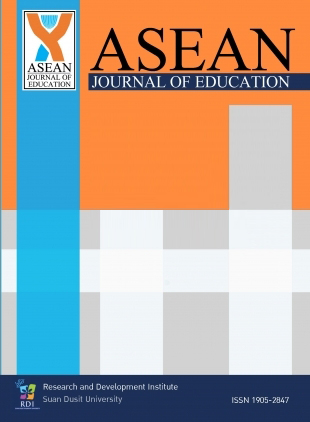A Needs Assessment Study to Improve the Quality of the Thailand National Test
Keywords:
National Test, Needs Assessment, Standardized Test, Standard of TestingAbstract
This study uses needs assessment research to assess stakeholders’ needs for improving the quality of the Thailand National Test (NT) and its implementation. Related literature was reviewed. To validate the quality of surveys, three experts in the field of educational assessment verified the surveys using questionnaires (Item- Objective Congruence Index) to ensure the content and construct validity. Three types of online surveys with 5-level Likert rating scale questions and open-ended questions were sent to different groups of stakeholders’ representatives (staff from the Bureau of Educational Testing (BET) at the Office of Basic Education Commission (OBEC), Educational Service Areas (ESA) and schools). Surveys were conducted to collect opinions about the current state of and expectations about the NT’s quality and its implementation. SPSS was used to analyze mean and standard deviation of the results. The modified priority needs index (PNI Modified) formula was utilized to prioritize needs and areas to be improved for enhancing NT effectiveness. Content analysis of results from open-ended questions and a focus group interview indicated factors affecting quality of the NT and strategies for making improvements. Results reveal that of the six domains assessed using the PNI Modified formula, the three domains of the NT with the highest identified improvement needs were the test writers domain (PNI modified = 0.22), the test development domain (PNI modified = 0.16), and the scoring domain (PNI modified = 0.08).

Downloads
Published
How to Cite
Issue
Section
License
1 All articles will undergo a formal peer-review. A panel of experts from within or without the university will examine the article; approval from a minimum of two experts is required for publication. Revisions posed by the experts must be completed by the research prior to publication.
2 Once published in the ASEAN Journal of Education, the article becomes intellectual property of Suan Dusit University. Duplication, in full or part, requires permission from Suan Dusit University.
3 Excluding errors incurred during printing, author(s) are responsible for the content of their articles.





